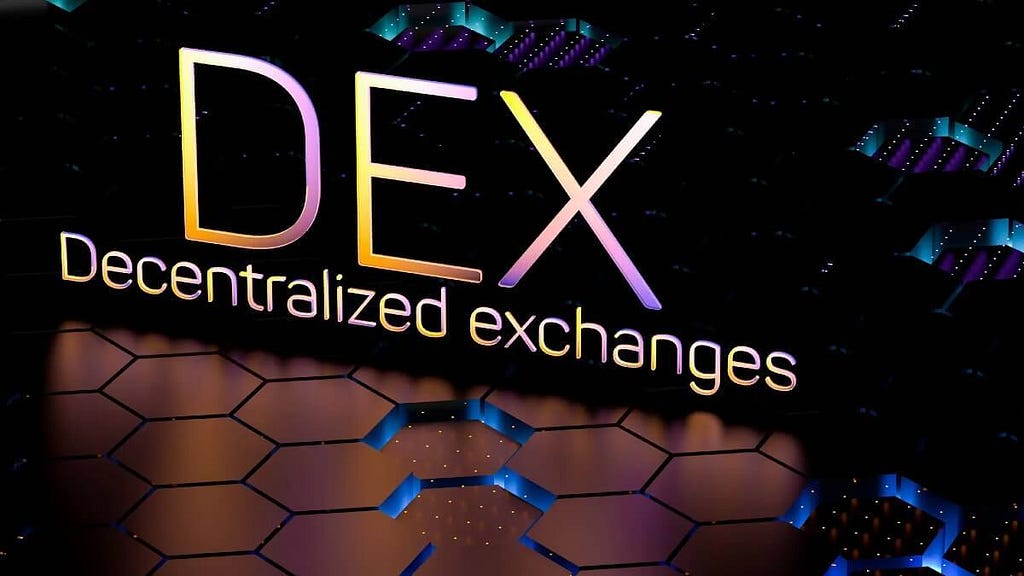
Decentralized exchange (DEX) platforms are transforming the cryptocurrency trading landscape by enabling peer-to-peer transactions without the need for intermediaries. This model enhances user control, privacy, and security, making DEXs an appealing choice for traders and investors alike. Below, we will explore what DEX platforms are and key features to look for when considering a DEX.
What is a Decentralized Exchange (DEX)?
A decentralized exchange (DEX) is a platform that allows users to trade cryptocurrencies directly with one another through blockchain technology. Unlike centralized exchanges (CEXs), which act as intermediaries and hold users’ funds, DEXs operate on a non-custodial basis. This means that users maintain control of their private keys and assets throughout the trading process, significantly reducing the risk of hacks and fraud.
Key Characteristics of DEXs
- Peer-to-Peer Trading: DEXs facilitate direct transactions between users, eliminating the need for a central authority to manage trades.
- Non-Custodial: Users retain ownership of their funds in personal wallets, enhancing security.
- Smart Contracts: Trades are executed through smart contracts, which automate processes and ensure transparency.
Key Features to Look for in DEX Platforms
When evaluating decentralized exchanges, several critical features that enhance user experience and platform efficiency should be considered by crypto exchange development services:
1. Automated Market Makers (AMMs)
AMMs are essential for providing liquidity in DEXs. They allow users to trade against liquidity pools rather than relying on order books. This system ensures that trades can be executed quickly and with minimal slippage, making it easier for users to swap tokens.
2. Liquidity Management
Effective liquidity management is crucial for any DEX. A well-structured liquidity pool can minimize slippage and improve transaction speeds. Look for platforms that employ advanced algorithms to maintain liquidity and incentivize liquidity providers through rewards.
3. User Interface (UI) and User Experience (UX)
A clean, intuitive UI is vital for user retention. The interface should be accessible to both novice and experienced traders, allowing easy navigation and engagement with platform features. A positive UX can significantly influence a user’s decision to return to the platform.
4. Security Measures
Security is paramount in the crypto space. Look for DEXs that implement robust security protocols such as multi-signature wallets, regular smart contract audits, and decentralized governance mechanisms to protect user funds from potential vulnerabilities.
5. Wallet Integration
Seamless wallet integration enhances user experience by allowing traders to connect their wallets directly to the DEX. This feature supports various wallet types and ensures that users can easily access their assets while maintaining security.
6. Decentralized Order Book
While many DEXs utilize AMMs, some incorporate decentralized order books that allow users to place limit orders similar to those found on centralized exchanges. This feature can provide more flexibility in trading strategies.
7. Cross-Chain Compatibility
As the DeFi ecosystem grows, interoperability between different blockchains becomes increasingly important. A good DEX should support cross-chain trading capabilities, allowing users to swap assets across various blockchain networks seamlessly.
8. Regulatory Compliance
With evolving regulations in the crypto space, it’s essential for DEXs to implement Know Your Customer (KYC) and Anti-Money Laundering (AML) processes where necessary. These measures not only enhance security but also help maintain the platform’s legitimacy in various jurisdictions.
9. Advanced Trading Tools
For more experienced traders, advanced trading tools such as candlestick charts, technical analysis indicators, and alerts for significant market movements can enhance trading strategies and decision-making processes.
10. Community Governance
Many successful DEXs incorporate community governance models that allow token holders to participate in decision-making processes regarding platform upgrades or changes. This feature fosters a sense of ownership among users and encourages community engagement.
As the cryptocurrency ecosystem continues to evolve, decentralized exchanges (DEXs) are becoming increasingly popular. Unlike traditional centralized exchanges, DEXs allow users to trade directly with one another, providing greater control over their assets and enhancing privacy. In 2024, several DEXs stand out for their features, usability, and community engagement.
- Uniswap
Uniswap is widely recognized as a pioneer in the DEX space and remains a leader in 2024. Built on the Ethereum blockchain, it utilizes an automated market maker (AMM) model that allows users to swap ERC-20 tokens directly through liquidity pools.
Key Features:
- Automated Market Maker: Uniswap operates without traditional order books, enabling users to trade directly from their wallets.
- Liquidity Pools: Users can deposit tokens into liquidity pools, ensuring continuous availability for trades.
- UNI Token: This governance token allows holders to participate in decision-making processes and earn a share of transaction fees.
Uniswap’s innovative approach has significantly influenced the DeFi landscape, making it a must-know platform for anyone interested in decentralized trading.
2. PancakeSwap
PancakeSwap is the leading DEX on Binance Smart Chain (BSC), offering a faster and more cost-effective alternative to Ethereum-based exchanges. It replicates many features of Uniswap but with lower transaction fees and quicker execution times.
Key Features:
- BSC Integration: By leveraging Binance Smart Chain, PancakeSwap provides rapid transaction confirmations at significantly reduced costs.
- CAKE Token: This native utility token facilitates governance, staking, and rewards for liquidity providers.
- Farms and Syrup Pools: These features incentivize users to provide liquidity and stake their tokens for additional rewards.
PancakeSwap has successfully attracted a large user base by focusing on scalability and affordability.
3. SushiSwap
SushiSwap emerged as a community-driven alternative to Uniswap, enhancing its predecessor’s features while introducing its own governance token, SUSHI. The platform has quickly gained popularity due to its commitment to decentralization and community involvement.
Key Features:
- Community Governance: Users can propose and vote on changes, fostering a sense of ownership.
- SUSHI Token: This token rewards liquidity providers and grants governance rights.
- Enhanced Features: SushiSwap offers unique tools like ‘Onsen’ for incentivized liquidity pools and ‘Kashi’ for lending services.
SushiSwap’s focus on community engagement sets it apart in the crowded DEX market.
4. Curve Finance
Curve Finance specializes in stablecoin swaps, providing an optimized platform for low-slippage trading between stable assets. Its unique AMM model caters specifically to traders looking to exchange stablecoins or pegged assets efficiently.
Key Features:
- Low Slippage: Curve’s design minimizes price fluctuations during trades.
- Incentivized Liquidity Pools: Users can earn rewards through CRV tokens by providing liquidity.
- DAO Governance: The platform is governed by its community through decentralized decision-making processes.
Curve Finance is an essential platform for those focused on stablecoin trading within the DeFi space.
5. dYdX
dYdX stands out as a leader in decentralized derivatives trading. It offers advanced features such as margin trading and perpetual contracts while allowing users to maintain custody of their funds.
Key Features:
- Perpetual Contracts: Traders can engage in contracts with up to 20x leverage.
- Non-Custodial Trading: Users retain control over their assets throughout the trading process.
- DYDX Token: This token facilitates governance and rewards within the ecosystem.
dYdX combines the benefits of decentralization with sophisticated trading features typically found in traditional exchanges.
Conclusion
In summary, decentralized exchanges are reshaping how individuals trade cryptocurrencies by offering enhanced control, privacy, and innovative features. The platforms highlighted — Uniswap, PancakeSwap, SushiSwap, Curve Finance, and dYdX — represent some of the best options available in 2024 for both traders and developers interested in DeFi solutions. If you are considering developing your own crypto exchange or exploring opportunities within the DeFi space, partnering with crypto exchange development company like Codezeros can provide you with valuable insights and expertise tailored to your needs.








